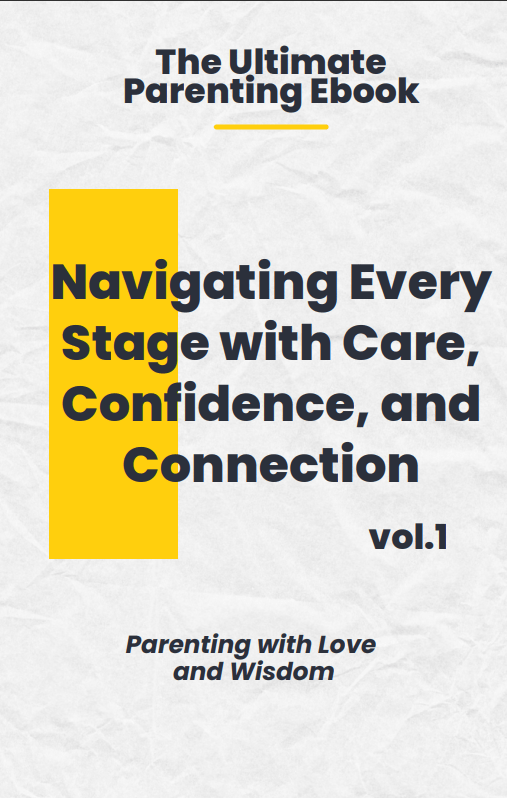
Are you ready to uncover the unexpected perks of homeschooling? In recent years, there’s been a noticeable surge in its popularity across the USA. Parents are increasingly turning to homeschooling as a viable alternative to traditional education systems, seeking more flexibility and personalized learning experiences for their children. This shift in educational preferences reflects a growing recognition of the numerous benefits it has to offer. Throughout this journey, we’ll delve into 7 surprising benefits of homeschooling that every parent should know.
Homeschooling offers unmatched flexibility, enabling families to customize education according to their individual needs and preferences. Whether it’s designing a custom curriculum or setting flexible schedules, it empowers parents to create an educational environment that best serves their child’s needs. Moreover, it fosters stronger family connections by offering ample opportunities for shared experiences and quality time together. From exploring local museums to embarking on educational field trips, it enables families to bond while learning.
Academic growth flourishes in the homeschooling environment, where personalized attention and tailored support cater to individual learning styles and interests. Socialization, often a concern for its skeptics, is seamlessly integrated into the homeschooling experience through various community activities, clubs, and co-ops. It also allows parents to instill their values and beliefs into their children’s education, ensuring a strong moral foundation alongside academic excellence.
Moreover, the nurturing and supportive atmosphere of homeschooling promotes improved emotional well-being, fostering a positive mindset and overall mental health. Real-world learning experiences abound in it, encouraging hands-on exploration and critical thinking skills development. With the flexibility to learn at their own pace, homeschooled students are better prepared for future success, equipped with valuable life skills and a solid academic foundation.
Essentially, it presents a plethora of advantages that reach well beyond the boundaries of conventional schooling. By embracing it, parents can unlock a world of opportunities for their children, providing them with a well-rounded education and a strong foundation for future endeavors. So, are you prepared to embark on this enriching journey? Let’s dive into the surprising benefits of homeschooling together.
Table of Contents
ToggleThe Top 7 Unexpected Benefits of Homeschooling
1. Embracing Flexibility with Homeschooling
Fellow parents, Let’s chat about the amazing world of flexibility and personalized learning tailored just for your child.
- Customized Curriculum: Say goodbye to rigid textbooks, with homeschooling, you have the freedom to create a curriculum that matches your child’s interests and learning style. Dive deep into topics they love, whether it’s astronomy, art history, or coding.
- Flexible Schedule: Need to juggle work and homeschooling? No problem, You can craft a schedule that fits your family’s lifestyle, whether it’s morning lessons, afternoon adventures, or even learning on the go during road trips.
- Homeschool Online: Thanks to the wonders of homeschool online resources, the world is your classroom. Explore virtual museums, interactive science experiments, and educational videos—all from the comfort of your home.
So, whether your child is a budding scientist, a future artist, or an aspiring chef, it empowers you to tailor their education journey for maximum flexibility and personalized growth. Ready to embark on this exciting adventure together? Let’s dive in.
2. Building Stronger Family Connections Through Homeschooling
Here, in this method of schooling, family bonds and quality time take center stage.
- Daily Family Meetings: Start each day with a family meeting to discuss goals, plans, and activities for homeschooling.
- Collaborative Projects: Engage in collaborative projects that involve the whole family, such as building a garden, creating a family cookbook, or planning a themed study unit together.
- Regular Family Outings: Schedule regular outings to museums, parks, countryside, sea, or community events where the family can bond while exploring new experiences and learning together.
- Family Volunteer Work: Get involved in volunteer activities as a family, whether it’s serving meals at a local shelter, participating in environmental clean-up efforts, or helping out at a community event.
- Family Game Nights: Set aside time for regular family game nights where everyone can come together to play board games, card games, or outdoor activities, fostering laughter, communication, and connection.
3. Achieving Academic Excellence Through Homeschooling
Hey parents, Let’s dive into the world of homeschooling and discover how it can lead to improved academic performance and personalized attention for your child.
- Tailored Learning: As a homeschool teacher, you have the ability to tailor the curriculum to your child’s unique strengths, interests, and learning style. Whether they excel in math or thrive in creative writing, homeschooling allows you to focus on areas where they shine.
- One-on-One Support: Say goodbye to crowded classrooms and hello to individualized attention! With homeschooling, your child receives personalized guidance and support from you as their dedicated teacher. This focused approach fosters a deeper understanding of concepts and encourages academic growth.
- Flexible Learning Pace: In the homeschooling environment, your child can learn at their own pace, ensuring mastery of subjects before moving on to the next level. Whether they need extra time to grasp a concept or are ready to tackle advanced material, it accommodates their individual learning journey.
So, whether you’re exploring science experiments in the kitchen, conducting history lessons in the backyard, or diving into literature discussions at the dining table, it empowers you to unlock your child’s full academic potential. Get ready to see them thrive and succeed like never before.
4. Nurturing Emotional Well-being Through Homeschooling
This is how homeschooling can positively impact your child’s emotional well-being and mental health.
- Encourage Open Communication: Homeschooling creates a safe and supportive environment where your child feels comfortable expressing their thoughts and emotions. Schedule regular check-ins to discuss feelings, concerns, and successes.
- Foster Positive Relationships: Facilitate opportunities for your child to connect with peers, mentors, and community members through homeschool co-ops, clubs, or extracurricular activities. Encourage friendships and mentorships that promote positive social interactions and support networks.
- Incorporate Mindfulness Practices: Introduce mindfulness activities such as deep breathing exercises, guided meditation, or yoga into your daily routine to help your child manage stress, improve focus, and cultivate a sense of inner calm.
- Embrace Emotional Learning: Integrate lessons and discussions about emotions, empathy, and self-awareness into your homeschool curriculum. Use literature, art, or role-playing activities to explore emotional themes and promote emotional intelligence.
- Prioritize Self-Care: Model healthy habits and self-care practices for your child, such as regular exercise, nutritious eating, and sufficient sleep. Encourage them to engage in activities that bring them joy and relaxation, whether it’s pursuing hobbies, spending time outdoors, or practicing creative expression.
5. Instilling Personal Values Through Homeschooling
Homeschooling cultivates character development through customized lessons, daily discussions, community engagement, and cultural exploration, fostering a well-rounded and empathetic learning experience.
- Customized Curriculum: Homeschooling allows for tailored lessons that align with family values, fostering character development.
- Daily Discussions: Regular talks about values like honesty and kindness reinforce lessons.
- Community Engagement: Homeschools connected with local groups offer opportunities for service and social responsibility.
- Cultural Exploration: Exploring diverse traditions instills respect and empathy in homeschoolers.
6. Embracing Real-world Learning Through Homeschooling
Homeschooling offers real-world learning experiences and practical skills for your child’s future success. HOW?
- Hands-on Exploration: From cooking in the kitchen to gardening in the backyard, it provides opportunities for practical, hands-on learning.
- Field Trips: Explore museums, farms, and businesses to gain real-world insights and experiences.
- Entrepreneurial Ventures: Encourage entrepreneurship by starting small businesses or engaging in community service projects.
- Problem-solving Challenges: Tackle real-life challenges and develop critical thinking skills through projects and activities.
- Financial Literacy: Teach budgeting, saving, and investing through real-world scenarios and discussions.
7. Equipping for Future Success and Beyond
Homeschooling not only empowers parents to provide personalized education, but also fosters academic excellence, emotional well-being, and practical skills for future success. Let me explain.
- Advanced Placement: it allows flexibility to pursue AP courses and exams, boosting college readiness.
- Personalized Guidance: Tailored support and attention help identify and nurture your child’s strengths and interests.
- Dual Enrollment: Opportunities for dual enrollment in community colleges provide early exposure to higher education.
- Independent Study: Self-directed learning fosters autonomy and time management skills crucial for college success.
- Real-world Application: Incorporating internships, volunteer work, and apprenticeships provides practical experience and career readiness.
Conclusion
In conclusion, homeschooling stands as a dynamic educational approach, offering families a myriad of unexpected benefits that extend far beyond traditional schooling. From unparalleled flexibility to strengthened family connections, it provides a platform for personalized learning experiences tailored to each child’s unique needs and interests. By fostering academic excellence, emotional well-being, and practical skills, homeschooling equips students with the tools they need to succeed not only in college but also in their future endeavors. With its emphasis on character development, real-world learning, and the integration of personal values, homeschooling emerges as a transformative journey that empowers parents to nurture their children’s growth and potential in a supportive and enriching environment. So, whether you’re drawn to the freedom of a customized curriculum, the warmth of daily family discussions, or the excitement of real-world exploration, it offers a wealth of opportunities for families to thrive and flourish together. Embrace the journey, and unlock the endless possibilities of homeschooling today.
You may also interested in : Minecraft for Homeschool : 10 Best Ways to Boost Learning in 2024
FAQs
1. What exactly is homeschooling?
Homeschooling is an educational approach where parents or guardians take on the role of the primary educator, providing personalized instruction to their children at home rather than sending them to a traditional school.
2. Is homeschooling legal?
Yes, homeschooling is legal in all 50 states of the USA, although specific regulations may vary. Parents typically need to comply with state homeschooling laws, which may include notifying the state, following curriculum requirements, and participating in standardized testing or assessments.
3. What are the benefits of homeschooling?
Homeschooling offers numerous benefits, including flexibility in scheduling and curriculum, personalized instruction tailored to each child’s learning style and pace, stronger family bonds, opportunities for real-world learning experiences, and the ability to instill personal values and beliefs into the educational journey.
4. Do homeschooled children socialize with peers?
Yes, homeschooled children have ample opportunities for socialization through participation in homeschool co-ops, community activities, sports teams, clubs, volunteer work, and extracurricular classes. Additionally, homeschooling can foster deeper family connections and relationships.
5. How do homeschoolers prepare for college?
Homeschoolers can prepare for college by following a rigorous academic curriculum, participating in dual enrollment programs, taking Advanced Placement (AP) courses and exams, seeking out internships or apprenticeships, and compiling a comprehensive portfolio of their academic achievements and extracurricular activities.
6. What resources are available for homeschooling families?
Homeschooling families have access to a wide range of resources, including online curriculum providers, educational websites, homeschooling support groups, local homeschool co-ops, libraries, museums, community centers, and educational materials from homeschooling publishers.
7. Can parents homeschool if they work full-time?
Yes, parents can homeschool even if they work full-time by utilizing flexible scheduling, online curriculum options, hiring tutors or educational facilitators, enrolling children in enrichment programs, or collaborating with other homeschooling families for co-op teaching arrangements. Flexibility and creativity are key to finding solutions that work for each family’s unique situation.




